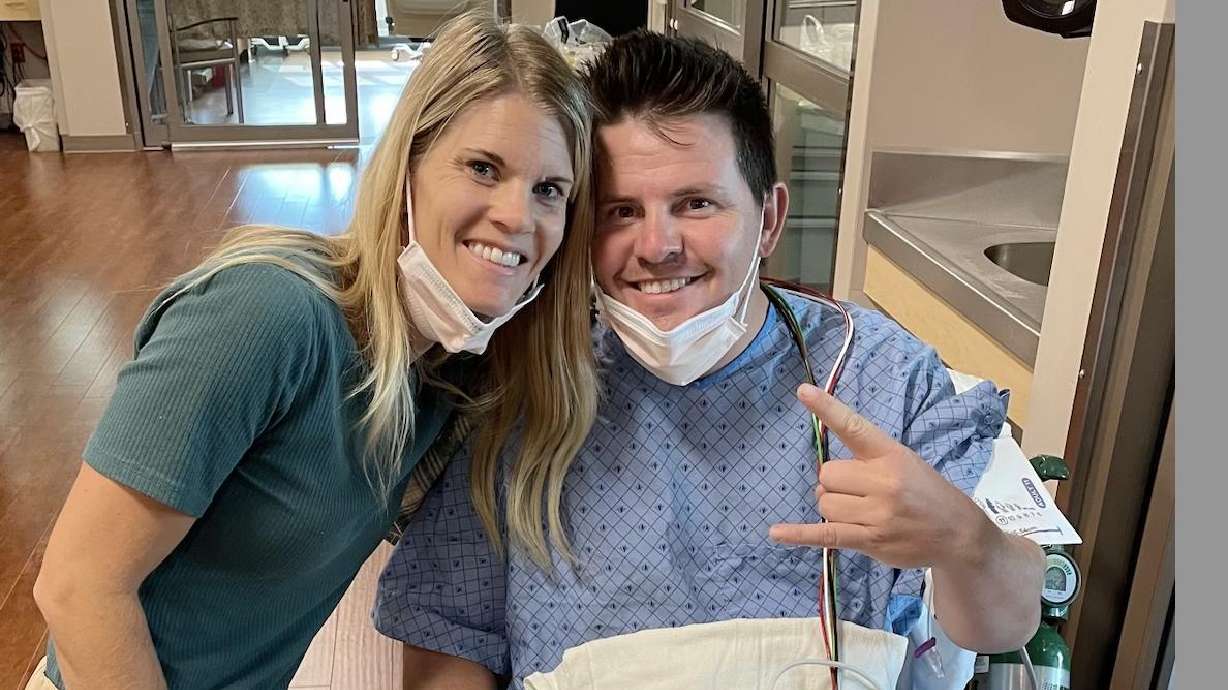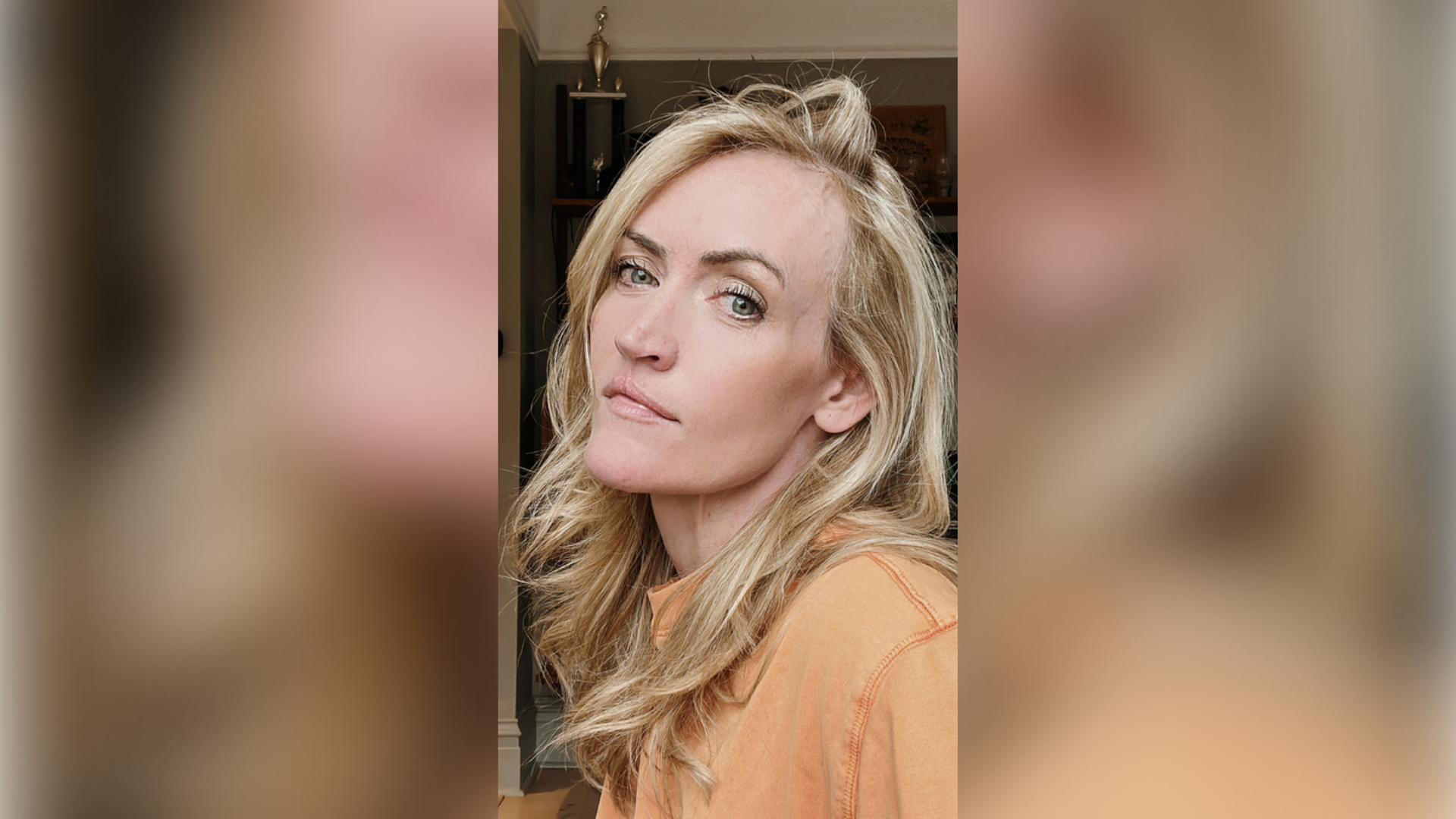HEALTH
Randall Carlisle details his journey through addiction recovery
Apr 17, 2019, 8:36 PM | Updated: 8:45 pm

Left to right: Dr. Matt Woolley, Randall Carlisle and Casey Scott.
Randall Carlisle, a well-known face on Salt Lake City television, is no stranger to alcohol addiction and the long road to recovery. The veteran news anchor retired from TV news in 2017 and now works at Odyssey House, a Utah treatment center.
But what many people may not realize is that Carlisle himself knows the struggle first hand – and is now sober after decades of alcohol abuse.
This week on Project Recovery, Carlisle tells his story publicly to host Casey Scott and clinical psychologist Dr. Matt Woolley. They talked about the very public falls from grace that a number of media personalities have suffered in recent years.
“People in our industry are very visible,” Carlisle said. “When we screw up, people write about it and people talk about it… I don’t think we have more of a problem than anybody else.”
Scott theorized that a life lived on camera doesn’t really have the opportunity for off-camera time.
“That’s how we made our money, so when things are going good, we can’t just show the good,” Scott said. “When something bad happens to us, it becomes the news.”
Becoming the news
Carlisle first arrived on Utah television screens in 1980, but he got his start on radio as a teenager.
“I started when I was 14 in a little town in Ohio,” Carlisle recalled on the podcast.
Carlisle worked his way up through the ranks of radio, eventually landing at a large AM station (in the days before FM radio took off) in Detroit. It was there he decided to make the transition to television news.
“The only place that offered me a job was Colorado Springs. I went there, to Dayton, Ohio, to Salt Lake City, to Minneapolis, to Dallas, and back to Salt Lake City,” Carlisle said.
Like many people in recovery, Carlisle says he began drinking as a teenager.
“I think I was 14. I was always very insecure, socially, and I’m not sure why,” he said. “I can’t remember where I was, but the first time I got high, drinking, I felt secure, and I felt great.”
Carlisle says he drank through high school and college and continued to do so throughout a fifty-year broadcasting career.
“A lot of people in the partying world, they call that ‘liquid courage,'” Scott interjected. “So you realized that at a young age.”
Woolley says Carlisle’s experience as a teen is very familiar in psychology circles.
“We talk a lot about behavior getting reinforced or punished. And if you were socially anxious, especially around girls when you were 14, 15, and that’s the most important thing when you’re that age, is to feel comfortable around the opposite sex, and you drank and you felt comfortable, then that was highly reinforced,” Woolley said. “Your brain starts to crave that feeling of comfort, and alcohol is a pretty quick way to make that happen.”
Eventually, though, Woolley says it devolves.
“It starts off that way, but then, eventually, for most people, it becomes, ‘I just want to feel detached, I want to feel drunk, I want to drink every night,'” Woolley said.
Carlisle describes himself as having been a “totally functional alcoholic.”
“Being an evening main anchor is a perfect shift for a functional alcoholic, if you think about it. I’d go into work at 2 [p.m.], get off at 10:35. I could then start drinking until I passed out, around one or two in the morning, and sleep till noon,” Carlisle said. “I never went to work drunk. I never drank at work. And I’d function fine, professionally.”
How Carlisle functioned on a personal level was another matter.
Behind the scenes of addiction
“I went through four wives, OK? And they all complained that I drank too much,” Carlisle said. “And friends would say, ‘You really drink a lot.’ And I’d say, ‘Yeah, I do drink a lot, but it’s not a problem.'”
Carlisle says he now realizes he was in denial, potentially for decades, about his alcoholism. Woolley said that’s typical.
“Denial’s a powerful thing, and we all have our areas of life that we’re in denial about,” Woolley said.
“My world focused on work and then drinking, and then everything else after that,” Carlisle acknowledged. “I didn’t do anything without drinking, except work. And so when I was home, I was never present for my wife.”
Carlisle said at the time, he blamed his ex-wives. But now that he’s been sober seven years, he sees it differently.
“It was primarily my fault,” he told Project Recovery.
Carlisle eventually lost his job in television but says he was fortunate in that it appeared to be unrelated to his drinking. A new owner had picked up the station where he worked, and Carlisle recalls being called into the general manager’s office and told he was no longer needed. The new owners bought out the rest of his contract, but he was devastated.
“I was crushed,” Carlisle said. “That was my life. That, and drinking. I had trouble dealing with that.”
Carlisle had been sober for about nine months – in part, he says, because of pressure from his fourth wife, who encouraged him to get help – when he lost his job. He had gone through detox at the University Neuropsychiatric Institute, or UNI.
“I finally get sober, and then my wife leaves me and I lose my job,” Carlisle said, explaining that it pushed him back toward alcohol.
With no job to force him to stay sober, Carlisle said he then began to drink in earnest.
“I really hit it hard,” Carlisle remembered. “I was so bad that when I woke up in the morning, I had to drink three or four beers before my hand was steady enough to shave… I became more and more depressed, feeling worse about myself, I’d cut off all my friends. I really isolated at that point.”
Carlisle had found his rock bottom.
The turning point
In desperation, Carlisle reached out to a therapist he had met during his first round of detox. It was a weekend, and she told him if he could get himself to UNI, they had a place for him.
He staggered and stumbled to a nearby hotel lobby, where a bellhop helped him hail a cab.
“I went up to UNI and went through detox again, went through recovery work again,” Carlisle said. “And have been sober ever since.”
Carlisle doesn’t know what made him pick up the phone and call the therapist that day. He had the chance to ask her again recently about that call as he interviewed her for a presentation he was giving at an area university. He asked what she remembered.
“‘You sounded like you were pretty out of it, but you also were asking for help,'” she told him. “I wish I knew [what it was], because if you could find that switch that clicked in my brain at that point, and you could manufacture that for everybody who’s dealing with addiction, that’d be a pretty valuable switch, wouldn’t it?”
Woolley said each person’s reason for seeking sobriety is unique to them, but hope is always part of the equation.
“It sounds like there was something inside of you that was still thinking, ‘I could turn this around,'” Woolley said. “And I think hope as a concept drives a person to find that switch — whatever it is. I think for a lot of people it has to do with not wanting to give up the positive parts of their identity.”
Road to recovery
After detox, Carlisle entered Recovery WORKS, UNI’s outpatient program for addiction recovery.
Since then, Carlisle said he’s been determined to stay sober.
“I did a bunch of things. I went to 90 AA (Alcoholics Anonymous) meetings in 90 days, which some people recommend you do. I also made doubly sure that I wouldn’t get drunk. I took Antabuse for eight months, and for people who don’t know, it makes you sick as can be if you drink while you’re taking it,” Carlisle said.
He also went back to UNI for something called aftercare and focused on learning how to stay sober. For years, Carlisle said, he turned to alcohol for all of life’s moments – bad or good. In recovery, he learned to find other ways to interact with life events.
Eventually, he was able to stop taking Antabuse and started looking for work.
“I tried anything but getting back into TV,” he said. “I applied to be a shuttle bus driver at the airport. Got turned down. Applied to be a crossing guard. Got turned down.”
Then, he applied at a couple of grocery stores. Harmons, a Utah grocery chain, called him back for an interview and hired him as a customer service manager.
“And I’m sure the only reason they did is because I was well-known from TV,” Carlisle said. “I didn’t know crap about the grocery industry, but I learned really quickly. And I found that a very humbling and a very rewarding job, and I’ll always credit Harmons with giving me that chance.”
Carlisle says customers did recognize him from time to time and would ask him why he was working there. His answer: “Because I want to.”
Scott related a similar experience delivering furniture.
“I’d walk in, and they’d go, ‘Hey, aren’t you?’ And I’d go, ‘Yeah,'” Scott said. “And then if they’d ask, I would tell them about the DUI and the rehab.”
After a while, a local television station got another new owner and invited Carlisle back to do some anchoring and reporting on weekends, so he worked both there and at the grocery store for a while.
Through coverage of Operation Rio Grande, a sweeping, multi-jurisdictional approach to addressing homelessness and drugs in downtown Salt Lake City, Carlisle had the opportunity to go to work with Odyssey House, a nonprofit recovery center.
“They offered me this job of media and community relations,” Carlisle said. “I began to think about it, and I thought, ‘Wow. That probably is a good way to wind up my working life.'”
A year and a half later, Carlisle says he still loves what he does with Odyssey House.
“My goal is not so much to push Odyssey House as to push recovery, and do as many — get news people to do as much positive stories as they can on the fact that this is a disease. It’s not a bad moral choice — I mean, maybe initially it is, but it’s a disease that people are fighting, and that recovery is possible.”
Watching people leave behind life on the streets to go through recovery has helped him realize recovery is within reach for anyone.
“Whatever works, works, but recovery is possible, and that’s the message I want to get out,” Carlisle said.
Hear more of Carlisle’s story and learn about addiction recovery resources on the Project Recovery podcast, available to subscribe and listen free wherever you listen to podcasts.
















